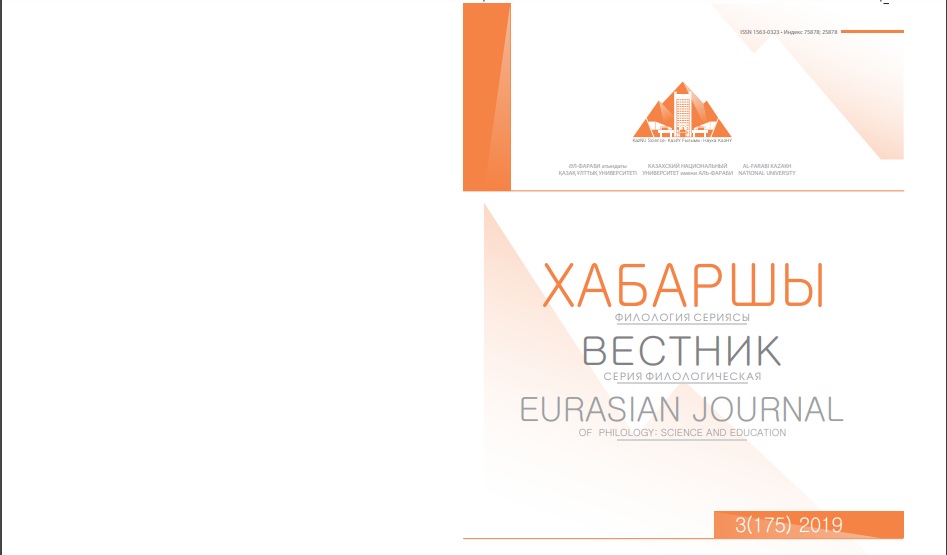Ethnological research of the literary texts at the stage of the pre-translation analysis (on the example of the trilogy of A. Nurpeisov «Blood and sweat»)
DOI:
https://doi.org/10.26577/EJPh-2019-4-ph29Abstract
The article deals with the issues of ethnological research of literary text. The insufficiency of
the scientific research of this problem in the field of translation theory and practice determines the urgency
of this study. The methods of ethnological analysis are discussed: 1) the biographical method, according to
which the social and cultural facts of a particular ethnic group can be studied using biographical materials
and events. The object of this analysis is a literary text created in the spirit of realism; 2) analysis of the text
with the preparation of the “questionnaire” – an empirical study, with the help of which ethno-cultural
characteristics, values, religion of the heroes of a literary text are revealed; 3) the method of researching the
personality in the context of culture, which determines the components of which the image described by
the realist writer consists of. It mainly analyzes the character’s speech behavior through which ethno-cultural peculiarities are determined. The scheme of studying literary texts, aimed at revealing the ethno-cultural information of the source text at the stage of the pre-translation analysis is proposed.The topicality of
this research is determined by the need for improving the quality of translated works and elimination of
errors in the translation of ethno-cultural elements that arise due to insufficient knowledge of extralinguistic
factors. As an example, the literary originality of the style of A. Nurpeisov, the classic of Kazakh literature
is considered and the writer’s trilogy «Blood and Sweat» is analyzed.






